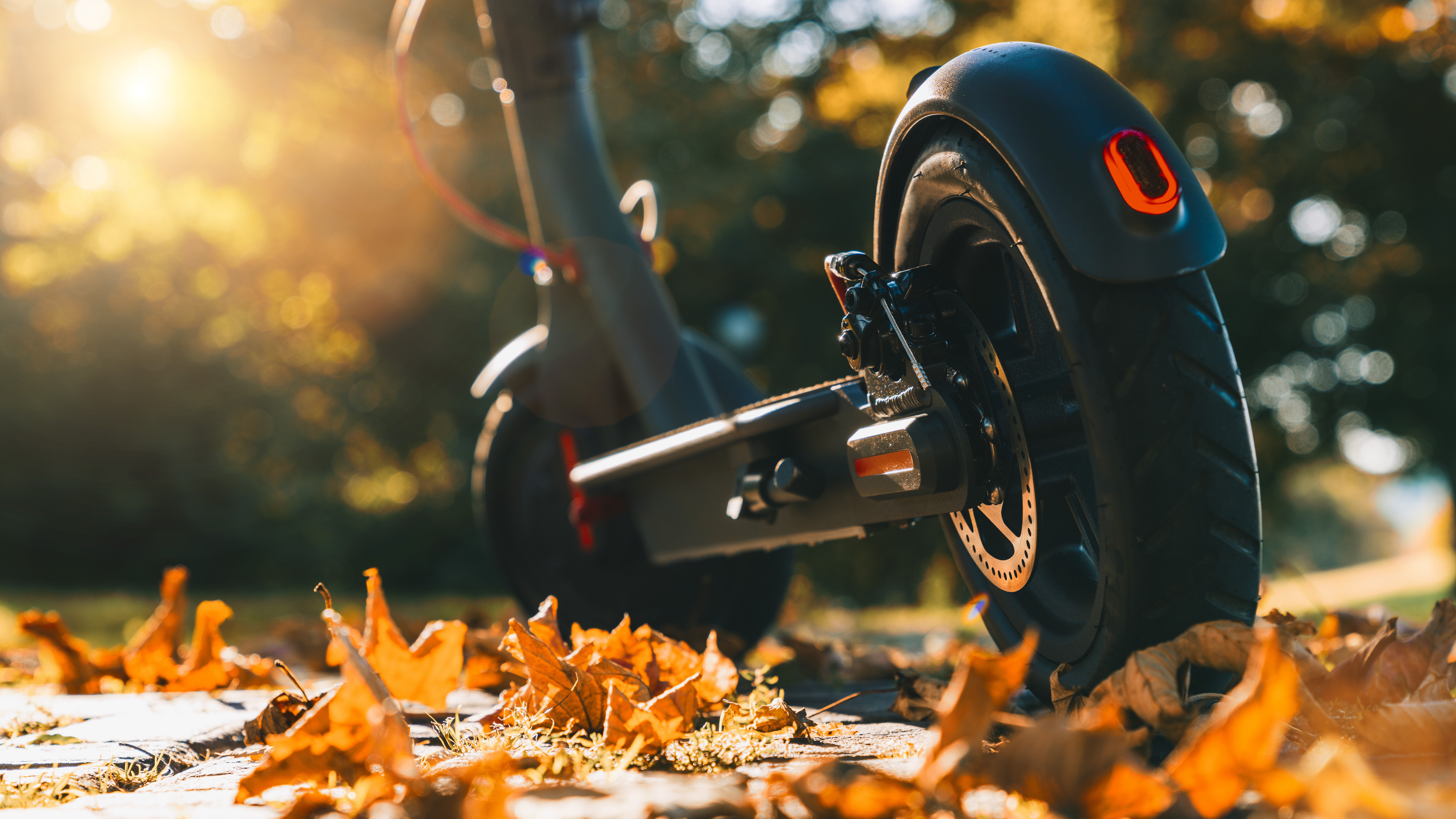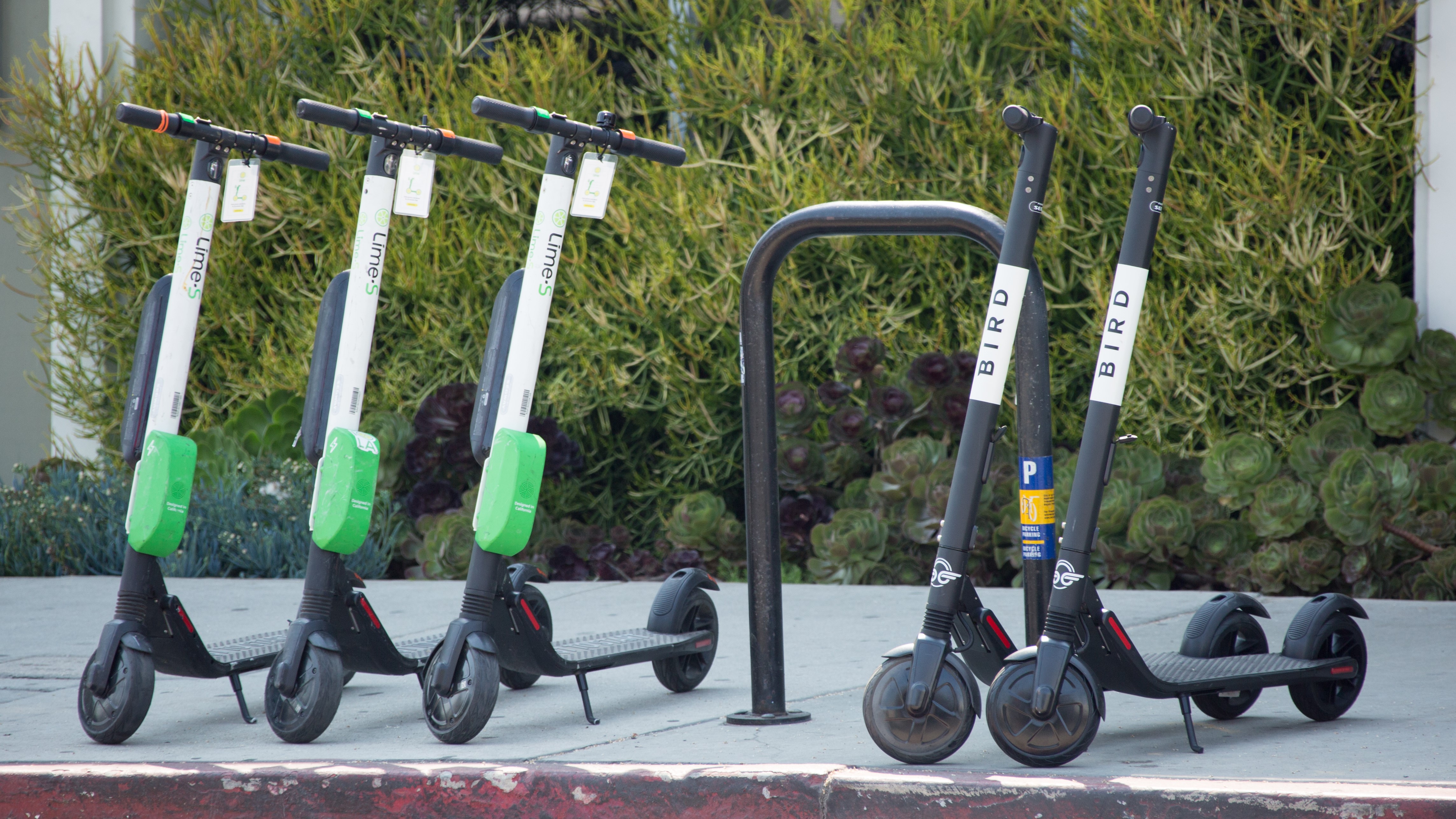
Are electric scooters legal in the UK? The answer is yes – sort of.
Electric scooters will very soon be road-legal, but with strict limitations. From July 4, it will be legal to ride a scooter on roads, cycle paths and cycle lanes, but only if it's part of a hire scheme. If you own an electric scooter yourself, it will be illegal to ride it anywhere except private land, with permission from the land-owner.
The law is otherwise quite clear: no e-scooting allowed. If you're stopped by police, you could receive a £300 fixed penalty notice, plus six points on your driving licence (if you have one)– and although it might seem surprising considering how many e-scooters you see in a typical city, that does happen. Last summer, police in London stopped over 100 e-scooter riders over a single weekend.
To hire an electric scooter, you must have at least a provisional driving license, and be at least 16 years old. Scooters are limited to a maximum speed of 15.5mph, and although you don't have to wear a helmet, it's recommended.
But why has it taken so long for electric scooters to be legalised – and why are electric bikes different?
Types of electric vehicles
Electric scooters have long been something of a grey area, as they are classed as personal light electric vehicles (PLEVs) – a category that also includes cars and motorbikes, and requires licensing, tax, MOT, signalling ability, number plates and visible rear red lights. PLEVs must also meet minimum construction requirements to be considered road legal.
By contrast, pedal-assisted electric bikes are treated the same as ordinary bicycles, and don’t have to be registered, taxed or insured. You have to be at least 14 years old to ride one though, and the motor must have a maximum power output of 250 watts. The motor shouldn’t be able to propel the bike when it’s travelling at more than 15.5mph. Any e-bike that doesn’t fall into those rules is treated as an electric motorbike or moped.
Get daily insight, inspiration and deals in your inbox
Sign up for breaking news, reviews, opinion, top tech deals, and more.
Mobility scooters and powered wheelchairs are divided into two types: class two, which cannot be used on the road and have a maximum speed of 4mph, and class three, which can be used on the road and have a top speed of 8mph. Class three vehicles have to be registered, and can only be driven by someone 14 or older.

Electric scooter hire schemes
There have already been some small electric scooter trials in the UK, including a long-running scheme operating in London’s Olympic Park, but now the government is planning to extend trials to any town or city that’s interested, and the first schemes are expected to start from 6 July.
These trials were initially due to begin in 2021, but have been shifted forward in the wake of the coronavirus pandemic to take the weight off public transport, and encourage people to get around in a way that’s more environmentally friendly than driving.
Several electric scooter companies have confirmed that they’re talking to local authorities in the UK about starting pilot schemes. US-based Bird and Lime are making their case, according to CNBC, as well as European startups Tier and Voi.
After the government announced details of its framework for electric scooter trials, Tier revealed that it has over 1,000 scooters in its UK warehouse, primed and ready to roll.

Privately owned scooters
Trials will be limited to hire scooters – not privately owned ones. This is partly because local authorities are worried about shoddily built electric scooters, and partly because want to keep a close eye on where scooters are being ridden and how, which is only possible if they're all GPS-enabled.
There are certainly advantages to having your own scooter. Not only will it work out cheaper in the long term with regular use, it also means you won’t have to worry about sanitising the handlebars before setting off – something that would be tricky to manage with rented vehicles. Bird and Lime have suspended dozens of hire schemes around the world for exactly that reason (though interestingly, Spin says it’s been asked to ‘step up’ its hire services to fill the gap left by missing public transport).
What's next?
It seems it will only be a matter of time before electric scooters are fully legalised in the UK, but there will doubtless be rules on not only when and where you can ride, but also helmets, engine size, and maximum speed. While most electric scooters max out at 15mph, some can hit up to 29mph.
When e-scooters do receive the green light, it’ll almost certainly be wisest to source yours from a UK retailer (many of which already exist) so you can be certain it’ll comply with the relevant laws and you don’t accidentally end up with something that’s classed as a moped, and you’ll be covered by an appropriate warranty in case anything goes wrong.
We’ll keep you updated when new trials are announced and more information is provided, so stay tuned.
- Check out our guide to the best electric bikes

Cat is TechRadar's Homes Editor specializing in kitchen appliances and smart home technology. She's been a tech journalist for 15 years, having worked on print magazines including PC Plus and PC Format, and is a Speciality Coffee Association (SCA) certified barista. Whether you want to invest in some smart lights or pick up a new espresso machine, she's the right person to help.